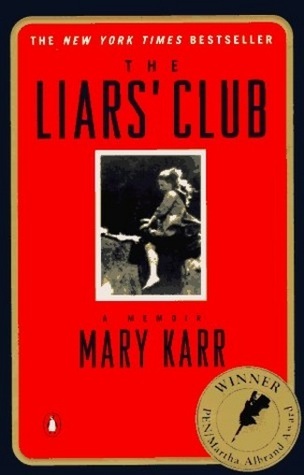More on this book
Community
Kindle Notes & Highlights
Not long before my mother died, the tile guy redoing her kitchen pried from the wall a tile with an unlikely round hole in it.
to plug a reader into some wall outlet deep in the personal psychic machine that might jumpstart him or her into a more feeling way of life.
a dysfunctional family is any family with more than one person in it. In other words, the boat I can feel so lonely in actually holds us all.
When I asked him to define one (I think it was during the Kennedy-Nixon debate), Daddy said a Republican was somebody who couldn’t enjoy eating unless he knew somebody else was hungry, which I took to be gospel for longer than I care to admit. Maybe the only thing worse than being a Republican was being a scab.
According to Daddy, who broke horses for Uncle Lee in the summer of 1931, Uncle Lee and Annie stopped talking that very year, after they got into a fight about how much money she spent on sugar. Annie Gleason saddled up an old mule they kept to keep the horses calm and rode all the way into Anhuac, Texas, with her boots dragging in the dust. She bought a fifty-pound sack of sugar, turned the mule around, and rode straight back and into the barn where Daddy and Uncle Lee were just nailing the last square-head nail into a quarter horse’s shoe. Still mounted on the mule, Annie slid a jackknife
...more
“Wouldn’t have said shit with a mouthful of it.
A slow race is the definitive Leechfield competition. You win it by coming in last.
Mother rarely even came out in the front yard since Mr. Sharp had told her she was going to hell for drinking beer and breastfeeding me on the porch.
At the sound of her voice, the kids all startled a little the way a herd of antelope on one of those African documentaries will lift their heads from the water hole at the first scent of a lion.
her face set so tight her mouth was a hyphen.
I still can recall Daddy holding a small horse quirt, my calves striped with its imprint and stinging and my saying, “Go on and hit me then, if it makes you feel like a man to beat on a little girl like me.” End of spanking.
I have seen her dismantle and reassemble a washing machine, stitch up a dress from a thirty-piece Vogue pattern in a day, ace a college calculus course after she’d gone back to school at forty, and lay brick. We used to say that if she really had her titty in a wringer, she could flat go to work wrestling it out.
I can see the panther pace back and forth behind the bars on the surface of her sunglasses, as if he were inside her peering out at us.
Before that summer, I had many times heard long-winded Baptist preachers take ten minutes to pray over card tables of potato salad and fried chicken at church picnics, but the way those sweating, red-faced men sat around on stacked pallets of lumber gulping oysters taught me most of what I know about simple gladness. They were glad to get fed for their labor, glad they had the force to pound nails and draw breath.
Oddly enough, she hated the taste so much that she literally had to hold her nose to swallow the first one, like a kid taking medicine. But after that one, she downed them the way people in hell must down ice water.
And I came back with a reply that the aging mothers in that town still click their tongues about. It was easily the worst thing anybody in Leechfield ever heard a kid say. “Eat me raw, mister,” I said. I had no idea what this meant. The phrase had stuck in my head as some mild variant on “Kiss my ass,” which had been diluted from overuse.
The next day, I planned to picket the Carters’ driveway, believing kids from union families wouldn’t cross such a line to play with them. With Mother’s oil paints, I wrote placards for Lecia and me to carry. Mine read, prosaically enough, “Down with the Carters”; Lecia’s, “The Carters Fight Unfair.”


